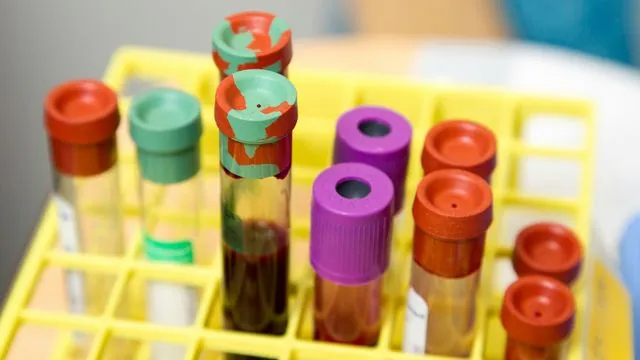
New Pathways in Genetic Testing: Could This Revolutionize BRCA Cancer Detection?
2024-10-02
Author: Nur
New Pathways in Genetic Testing: Could This Revolutionize BRCA Cancer Detection?
A team of scientists from The Institute of Cancer Research in London has made groundbreaking strides in how genetic testing is conducted for BRCA gene faults, which are linked to various cancers. Their innovative approach may not only enhance treatment options for patients but also significantly increase the number of individuals who receive essential testing.
Currently, BRCA testing typically involves a time-consuming appointment with a genetic counsellor or healthcare provider. This lengthy process has led to the unfortunate reality that only about 20% of women diagnosed with breast cancer are able to access BRCA gene testing. The new pathway proposed by researchers advocates for a digital-first approach, where patients receive information regarding BRCA testing online instead of through traditional appointments. This shift not only offers convenience but could potentially alleviate some of the pressures currently facing the National Health Service (NHS).
Understanding the BRCA Genes and Their Implications
BRCA genes are vital because they play crucial roles in repairing damaged DNA. An estimated 1 in 400 individuals inherit mutations in these genes, which can substantially raise the risk of several cancers, including breast, ovarian, prostate, and pancreatic cancer. Fortunately, there are targeted therapies available for tumors linked to BRCA mutations, making early detection crucial.
The pivotal BRCA-DIRECT study involved 1,140 breast cancer patients who had not previously been tested for BRCA mutations. The results, recently published in the British Journal of Cancer, revealed that 91% of participants who used the digital information method proceeded with testing, compared to 85% who underwent traditional phone consultations. Both approaches proved equally effective in terms of enhancing patient knowledge, alleviating anxiety, and ensuring satisfaction with the process.
Expert Insights and Future Directions
Professor Clare Turnbull from The Institute of Cancer Research noted the ongoing challenges in providing testing to all who need it, despite 30 years of advancements since the discovery of the BRCA genes. Turnbull emphasized the importance of making genetic testing accessible for everyone affected by BRCA mutations.
First author Bethany Torr highlighted that many individuals are unaware of their BRCA mutation status, which prevents them from taking preventive actions against cancer. The BRCA-DIRECT approach empowers patients by allowing them to process information at their own pace, ultimately contributing to better health outcomes.
Additionally, the research team is exploring the prospect of at-home saliva tests for BRCA mutations as an alternative to blood tests. This initiative aims to simplify the testing process, improve access, and relieve some of the burdens on the NHS.
A Patient's Perspective
Amy Louvre, a participant in the study, lauded the convenience of the home-testing option, stating, "After being diagnosed with breast cancer, I faced numerous challenges and was relieved to conduct my BRCA testing from home. The process was smooth, allowing my family and I to find reassurance knowing I did not have a BRCA mutation."
David Crosby, head of Prevention and Early Detection at Cancer Research UK, reiterated the critical need for early cancer detection. He expressed enthusiasm for the BRCA-DIRECT initiative, looking forward to its implementation across the NHS to assist more patients in understanding their genetic risks.
In summary, the introduction of digital information pathways and improved testing methods could drastically change the landscape of BRCA-related cancer detection, potentially saving countless lives. As the initiative develops, it may pave the way for a new era in patient care and genetic testing accessibility.


 Brasil (PT)
Brasil (PT)
 Canada (EN)
Canada (EN)
 Chile (ES)
Chile (ES)
 España (ES)
España (ES)
 France (FR)
France (FR)
 Hong Kong (EN)
Hong Kong (EN)
 Italia (IT)
Italia (IT)
 日本 (JA)
日本 (JA)
 Magyarország (HU)
Magyarország (HU)
 Norge (NO)
Norge (NO)
 Polska (PL)
Polska (PL)
 Schweiz (DE)
Schweiz (DE)
 Singapore (EN)
Singapore (EN)
 Sverige (SV)
Sverige (SV)
 Suomi (FI)
Suomi (FI)
 Türkiye (TR)
Türkiye (TR)